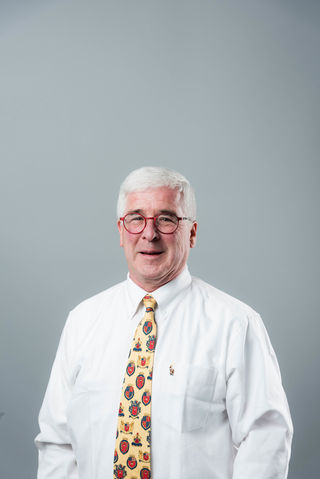Creativity
Job Candidates Need to Brush Up on Their Soft Skills
Here's how to stand out from the pack.
Posted March 12, 2020

With the national unemployment rate nearing a 50-year low, it’s unquestionably a jobseeker’s market. Still, my MBA students are eager for advice on how to stand out from the pack. Most often they seek guidance on where to boost their technical knowledge. They wonder, should I study Python or Java? Should I take more classes on blockchain? Is it too late to learn computer science?
All of those things could be helpful, of course, but my recommendation is more straightforward: Brush up on your soft skills.
The concept of soft skills—which include traits like the ability to work and get along with different kinds of people, the ability to express oneself and listen well, the capacity for self-awareness and empathy, and so on—has been around forever, but it’s only recently getting its due as organizations increasingly stress the need for workers with high emotional intelligence. According to a survey conducted by IBM last year, “[hard] skills remain vital, but executives [say] soft skills have surpassed them in importance.”
In the context of our increasingly digital workplaces, this heightened emphasis on soft skills makes perfect sense. Artificial intelligence is becoming more mainstream. The use of automation is on the rise. And more and more companies are embracing machine learning and data analytics to tackle business challenges.
But even as technology continues to change the way we work, there are certain people skills that computers can’t replicate. (At least not yet anyway.) Put simply, soft skills are coveted because they are uniquely human.
According to research from LinkedIn Learning, the most desired soft skills include creativity, collaboration, persuasion, and adaptability—all attributes that demonstrate our capacity for innovation, communication, and teamwork.
They may be called “soft skills,” but they are often the hardest ones to learn. That’s why business schools around the globe—including MIT Sloan, where I teach—have expanded their curricula related to soft skills. Organizations, too, have begun to offer soft skills training courses to employees.
But there are ways for workers to improve on their own. Start with creativity. Organizations seek workers with bold ideas. They need employees who can design original products and services, as well as make enhancements to products already on the market. They want people capable of dreaming up improvements to worker productivity and internal processes. And they are looking for workers with game-changing inventions. To get your creative juices flowing, you need to expose yourself to different ideas. Visit companies in different industries; network with people outside your domain expertise; and read a variety of books and media—not just the same old stuff. Be deliberate about creating opportunities to let your imagination run wild.
Organizations also want employees who know how to collaborate. They seek workers who are adept at forging alliances and cultivating relationships. They want people who have strong interpersonal skills and a willingness to cooperate for the greater good of the organization. To boost your competency here, pursue opportunities to work with people across your organization. Volunteer for a cross-functional committee. Attend meetings outside your department or division. Make it a point to engage in meaningful in-person social interactions and to seek out other perspectives and viewpoints.
The power of persuasion is yet another crucial soft skill. In the era of Big Data, organizations need people who, of course, grasp what the data mean, but they also need people who know how to effectively communicate those findings to diverse audiences with varying technical aptitude. They need employees who understand how to construct a logical argument and who are able to capture people’s attention with compelling and inspiring stories. Raise your influence by honing your communication skills. Seek out the assistance of a professional coach who can help you get better at public speaking. Joining Toastmasters could also help. Importantly, find ways to receive feedback on what you do well and where you need improvement.
Adaptability is also a vital trait. Change is hard—it’s human nature to resist it. We find a certain comfort in the status quo. But the breakneck speed of technological change and the quest for innovation calls for workers who are not only open to change but embrace it. Becoming more flexible requires opening your mind. Work on developing your sense of curiosity and empathy. Actively seek out novel ideas and experiences. Motivate yourself to try something new every day. Don’t be afraid to ask questions.
To be sure, employers still want job candidates that possess technical expertise and quantitative abilities aren’t going anywhere. The LinkedIn Learning survey found that today’s employers seek workers who understand blockchain, cloud computing, and analytical reasoning.
But at a time when automation and AI are changing both how we approach work and how it ultimately gets done, the demand for soft skills will continue to rise. As they say in the HR world, “Hard skills get you the interview; soft skills get you the job.”
Neal Hartman is a Senior Lecturer in Managerial Communication at the MIT Sloan School of Management.




